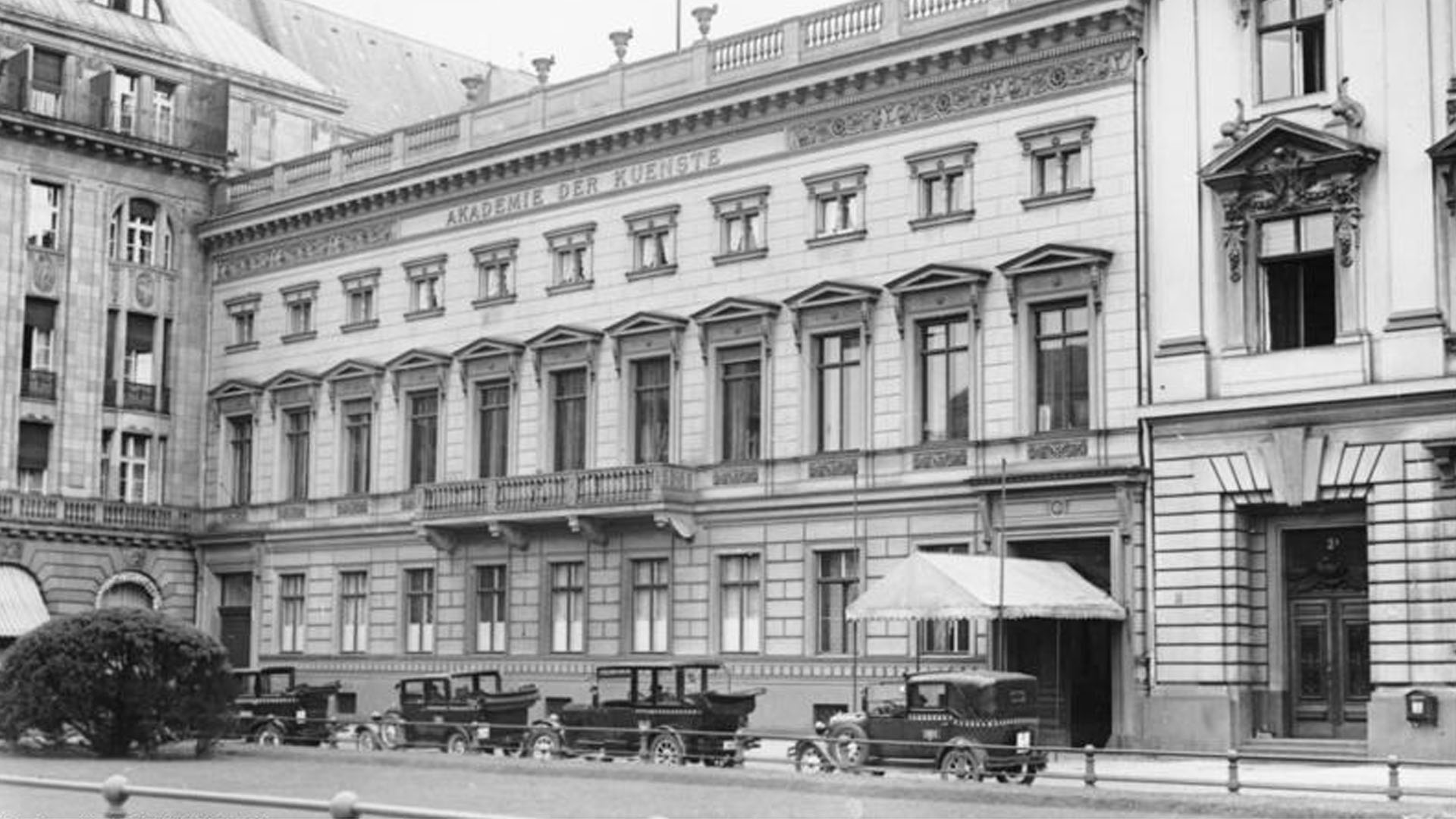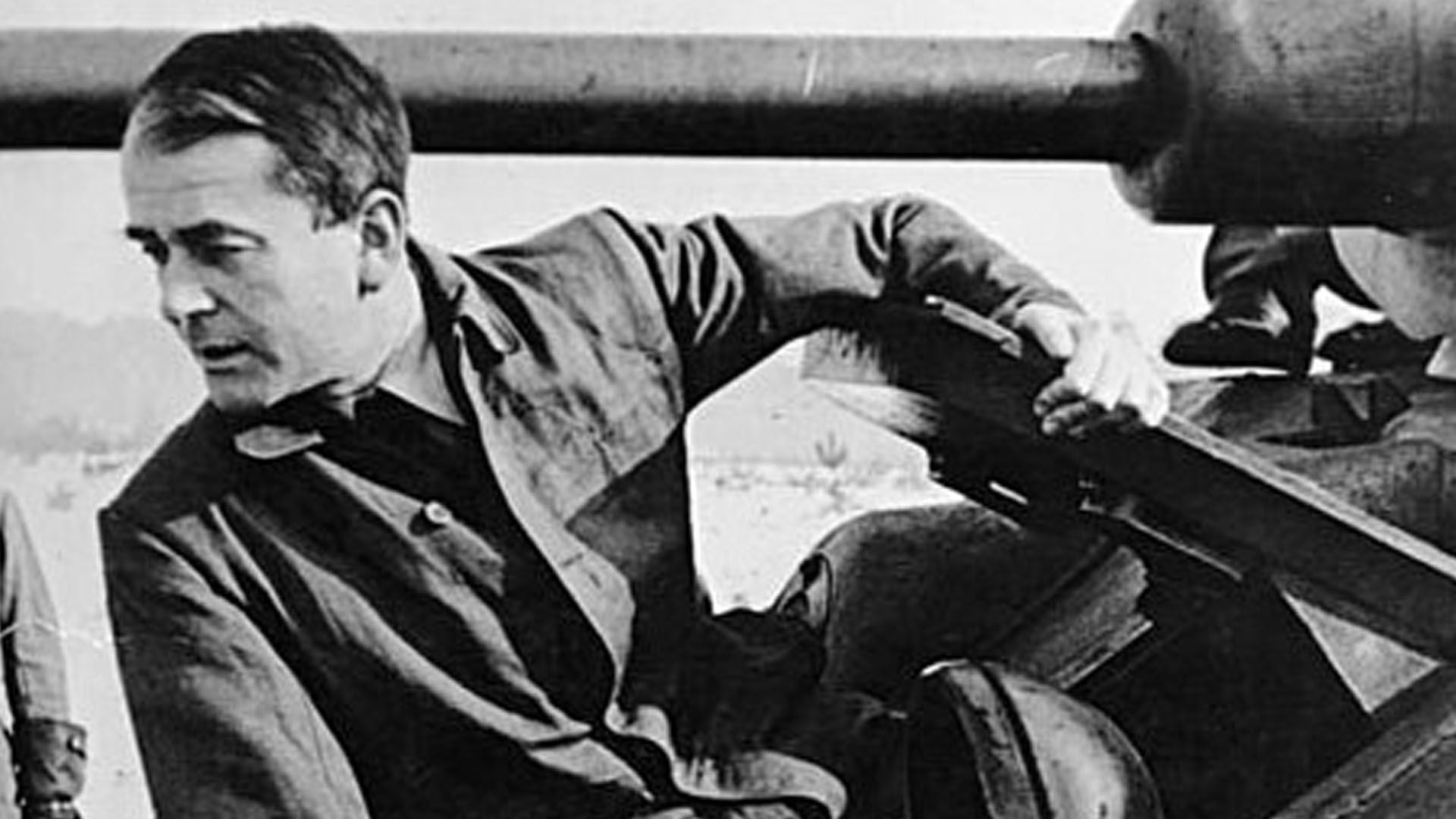The Berlin Academy of Arts is the oldest cultural institution in Germany. It exists to promote modern, contemporary art and to protect cultural heritage.
King Frederick I founded the Prussian Academy of Arts in 1696 as a forum for artists and scholars. The building on Pariser Platz was a private dwelling from 1734 and became the home of Count Arnim-Boitzenburg in 1858. The Prussian Treasury acquired the site in 1902 and architect Ernst von Ihne converted the building between 1904-1906.
Famous members of the academy include Wolfgang von Goethe, Felix Mendelssohn-Bartholdy, Bertolt Brecht, and Max Liebermann.
The Nazi party took over the academy, disbanding it in 1937. The building became the party’s head office of construction. This is where Hitler’s architect Albert Speer modelled the idea of “Germania”, the 1,000 year capital of the German Reich. Allied bombing of Berlin destroyed most of the academy, leaving only the exhibition halls intact.
One memory of the Nazi occupation of the building remains. In the main hall stands a statue of ‘Prometheus’ by Reinhold Begas. It once graced the offices of Albert Speer. The Nazis walled it up for safekeeping during the war. Construction workers discovered it buried away during rebuilding work.
During the Cold War, the building became a print and photographic workshop as the academy split into east and west factions. East German border troops commandeered part of the building after the building of the nearby Berlin Wall.
Today, since 2005, the Academy of Arts stands once again on Pariser Platz next to the Brandenburg Gate. This is where the original building stood. Stuttgart born architect Guenter Behnisch designed the modern glass-fronted building. Behind the glass, visitors can see the surviving ruins of the painting halls from the original building.
The 36m x 80m building stands in the southeast corner of Pariser Platz. Walking through will guide visitors toward the Holocaust Memorial Monument by Peter Eisenman.


